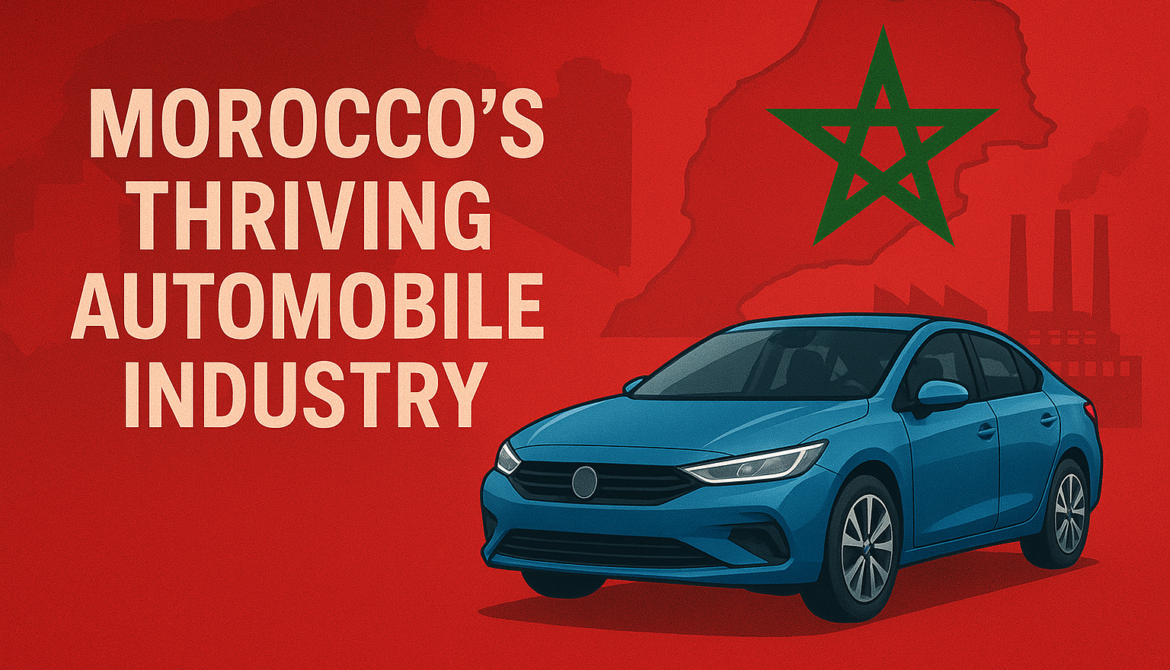Morocco has emerged as a significant player in the global automobile manufacturing industry, attracting major international automakers and component suppliers. The country’s strategic location, business-friendly environment, and government incentives have created a thriving ecosystem for automotive production and exports
Morocco’s automotive industry began taking shape in the 1950s, with the establishment of small assembly plants. However, it wasn’t until the 2000s that the sector experienced significant growth, driven by investments from European and Asian automakers which occurred as a result of deliberate policies by the Moroccan government to incentivize investments in the country’s automobile industry.
Amongst the policies implemented by the government were tax incentives which stipulated zero taxes for the first five years and just 15% tax thereafter. Also, vehicle manufacturers were fully exempted from the Value Added Tax (VAT) while a 15-year exemption was given on business and occupation taxes.
Other incentives include the government’s heavy investments in infrastructure and the Al-Boraq high-speed rail line, linking Casablanca and Tangier to smoothen the facilitation of exports to Europe, other Middle Eastern countries, and Asia. The government also established Automotive Industry Training Institutes to develop human capital while also investing $10 million in the Renault training centre which has a capacity for over 5,000 students.
Morocco also has about 60 free trade agreements with the European Union, the USA, Turkey, and the UAE which resulted in Morocco becoming an attractive export hub in the region. There are also policies to promote local sourcing of inputs in the industry which has encouraged a lot of local investments in the value chain of the country’s automobile industry. For instance, Renault has agreed to increase local sourcing of inputs to $2.9 billion by 2025 while adding a lot of value to the local economy in the process.
Today, Morocco is home to Renault with a production capacity of 400,000 vehicles per year, Renault’s Tangier plant is one of the largest in Africa.
Volkswagen’s Rabat plant also produces 100,000 vehicles annually while Peugeot’s PSA Group’s Kenitra plant has a production capacity of 200,000 vehicles per year.
Chinese automobile manufacturers are not left out as Morocco has become a significant hub for Chinese vehicle manufacturers, particularly in the area of Electric Vehicle (EV) manufacturing. BYD is one of the Chinese companies with a major presence in Morocco, leveraging the country’s strategic location as a gateway to Europe and the African markets.
Other Chinese companies investing heavily in Morocco’s EV and renewable energy sectors include:
– Gotion is a battery maker that is building a $1.3 billion Giga factory with a capacity of 20 GWh per year.
– CNGR Advanced Material, a battery parts maker, is partnering with Moroccan private investment fund Al Mada to build a $2 billion industrial base.
– Youshan, a subsidiary of China’s largest cobalt refiner Huayou, is teaming up with South Korea’s LG Chem to establish a lithium-iron-phosphate (LFP) cathode materials plant.
– BTR New Material Group, which is setting up a $300 million cathode manufacturing facility in the Tangier tech hub.
These investments which are driven by Morocco’s free trade agreements with the US and Europe, allow Chinese companies to bypass tariffs and duties imposed on Chinese-origin goods. The country’s vast phosphate reserves, strategic location, and skilled workforce also make it an attractive location for EV manufacturing.
As a result of all the investments in the value chain of the manufacturing process, the automotive industry has contributed significantly to Morocco’s economy with the sector now responsible for around 15% of Morocco’s GDP while over 100,000 people are directly employed in the sector.
Automotive exports also now account for approximately 30% of Morocco’s total exports contributing significantly to the country’s foreign exchange earnings.
Although Morocco faces competition from other emerging automotive hubs, such as Egypt and South Africa, they have a competitive advantage because they are closer to Europe which is the major market for their products. Moroccan manufacturers must also focus on improving quality and adopting advanced technologies to maintain their competitive edge. Morocco is also strategically positioned to become a hub for EV production, by leveraging on its renewable energy resources.
With the production of over 700,000 vehicles annually and annual export revenues of $14 billion, Morocco’s automobile manufacturing industry has established itself as a significant player in the global market. Production capacity in the country is currently being enhanced with plans to increase the number of vehicle exports from Morocco to 1,000,000 units by 2025. With continued government support, investment in infrastructure, and a focus on innovation, Morocco is poised to maintain its competitive edge and attract further investment from global automakers.
Oshobi, a development economist, management consultant, and author writes from Lagos, Nigeria

